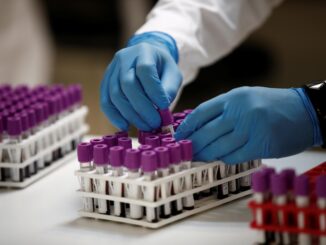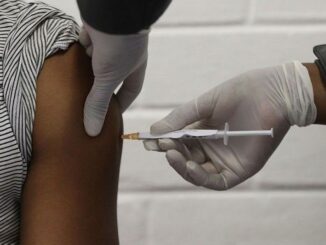
Leptospirosis cases are expected to increase within the next two weeks following the severe floods caused by Severe Tropical Storm Kristine, the Department of Health (DOH) said Sunday.
DOH spokesperson Assistant Secretary Albert Domingo said the numbers in leptospirosis data had already gone down prior to Kristine’s devastation, but it could jump again in the coming days as many people were exposed to floodwater.
“In the next two weeks, nakabantay ang DOH kasi ina-anticipate natin na tataas ang mga kaso ng leptospirosis [dahil] sa dami ng mga nabaha hindi lang sa Bicol, [kundi] nationwide,” he said in a Super Radyo dzBB interview.
(In the next two weeks, the DOH will be monitoring the situation as we anticipate the leptospirosis cases to increase due to the flooding not only in Bicol, but nationwide.)
Domingo thus called on individuals who waded through floods to immediately go to health centers or consult with doctors in evacuation centers to know if they need to take antibiotics.
Doxycycline is prescribed both as a prophylaxis and antibiotic against leptospirosis.
“Meron tayong mga kapuso na sabihin nating mabilis lang ‘yung daan sa baha, baka naman hindi kailangan ng gamot o kaya kahit napalusong pero isang araw lang, isang bigayan lang ‘yung gamot,” he explained.
(People who waded through the floods for only a short period of time might not need medicine or if they waded for only one day, the medicine might only be administered once.)
“‘Pag sinabing high risk at ‘yun ‘yung mga nakatira sa lugar na talagang hindi pa bumaba ‘yung baha, binibigyan sila ng gamot. Ang protocol ay once a week, so pinapabalik-balik sila,” he added.
(However, if they are high risk and live in areas where the flood has not yet receded, our protocol is that they need to take medicine once a week. So they need to return to health centers weekly.)
Leptospirosis is a bacterial infection transmitted by animals such as rodents. Urine from infected rats could mix with floodwater during heavy rains, and could therefore enter the human body of people wading through floods.
Its symptoms include fever, vomiting, nausea, muscle pain and headaches.
The incubation period of leptospirosis may range from 2 to 30 days, usually showing symptoms around 1 to 2 weeks after exposure to contaminated flood waters.
READ: Here’s what you need to know about leptospirosis
—RF, GMA Integrated News





Be the first to comment